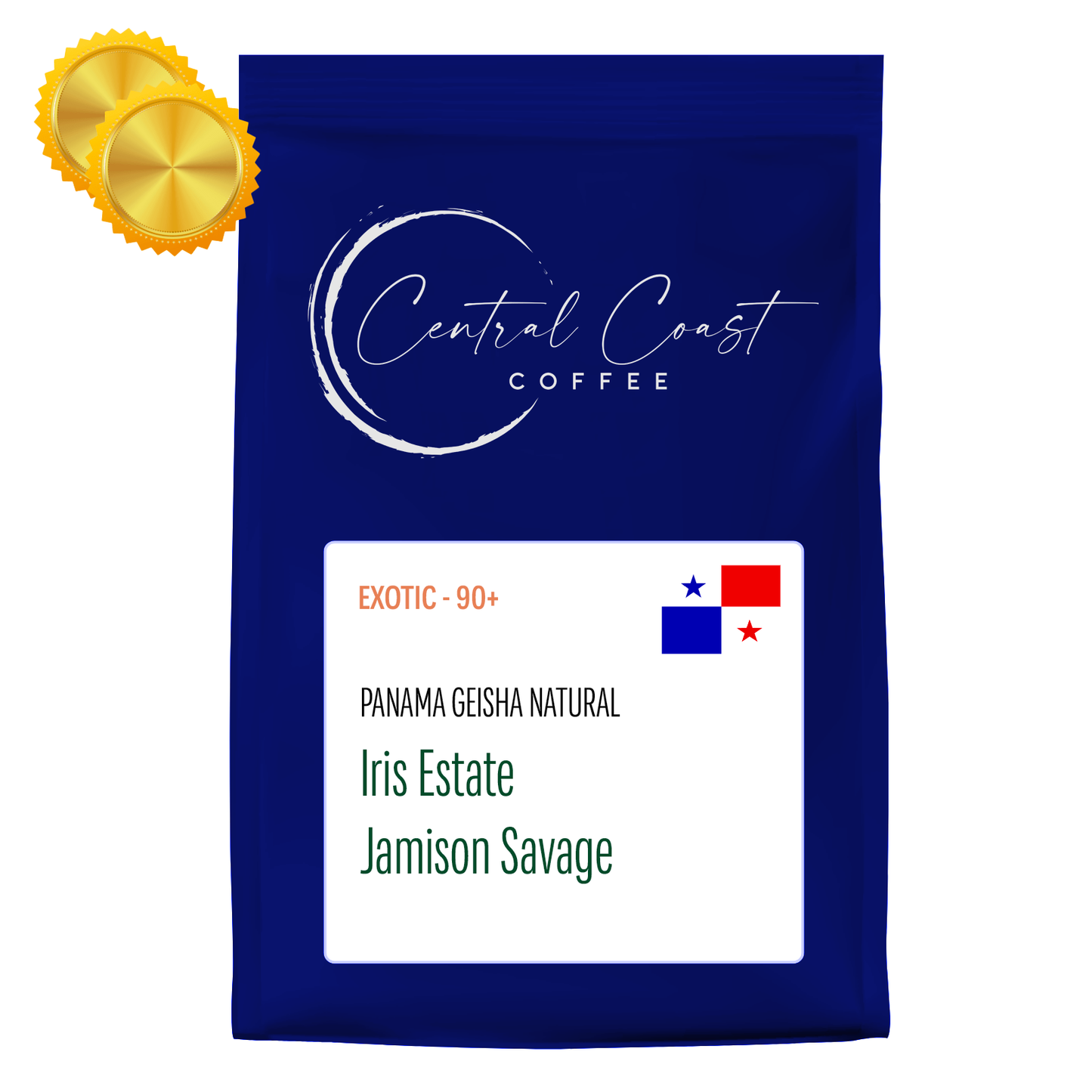
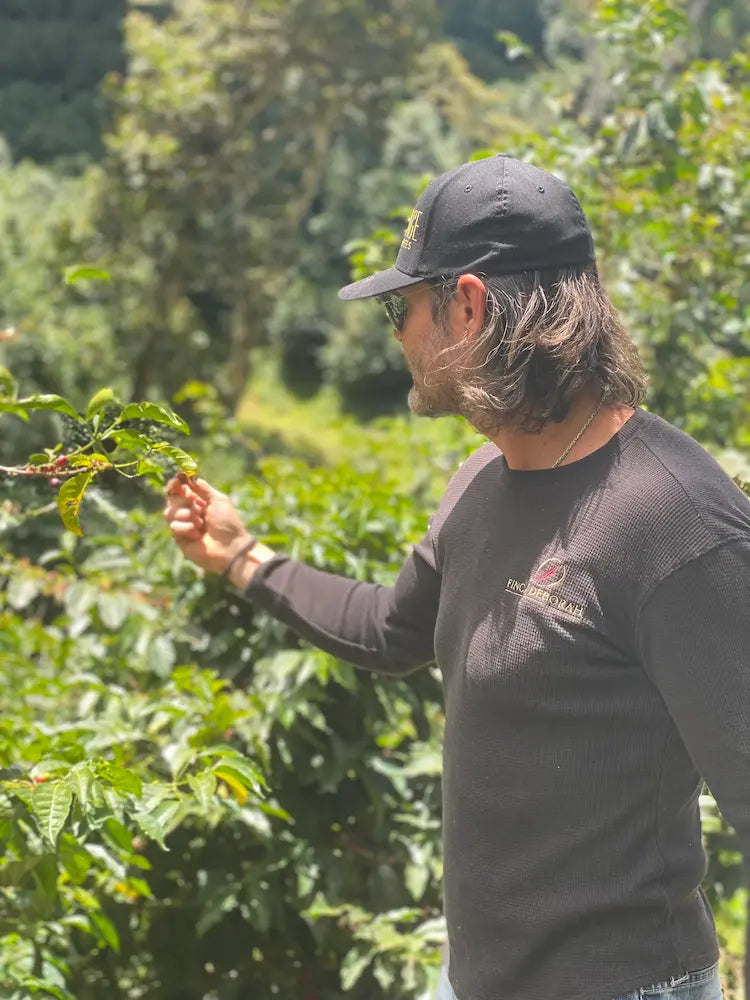
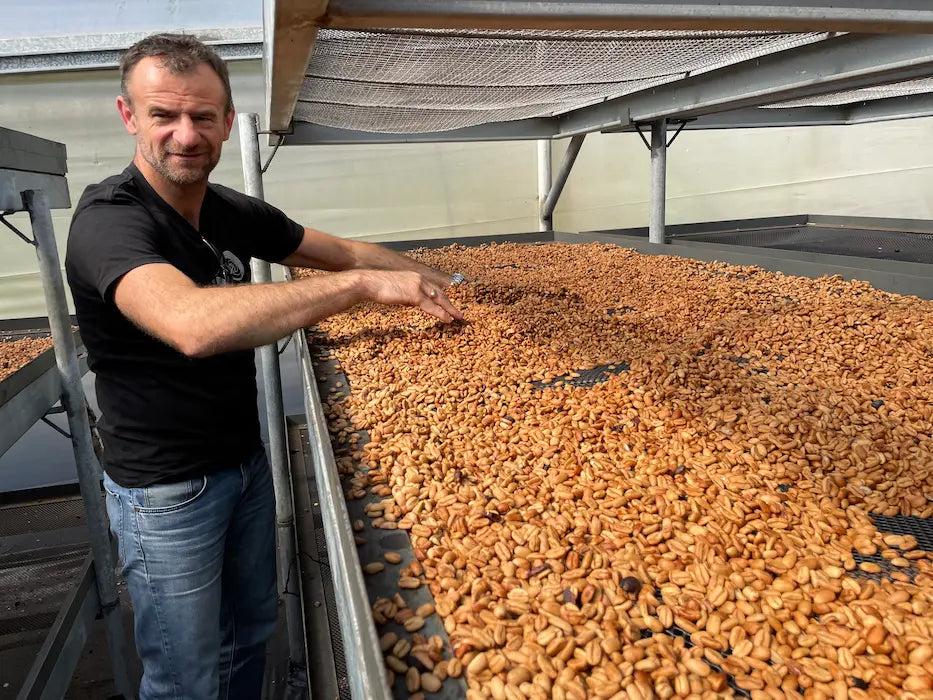
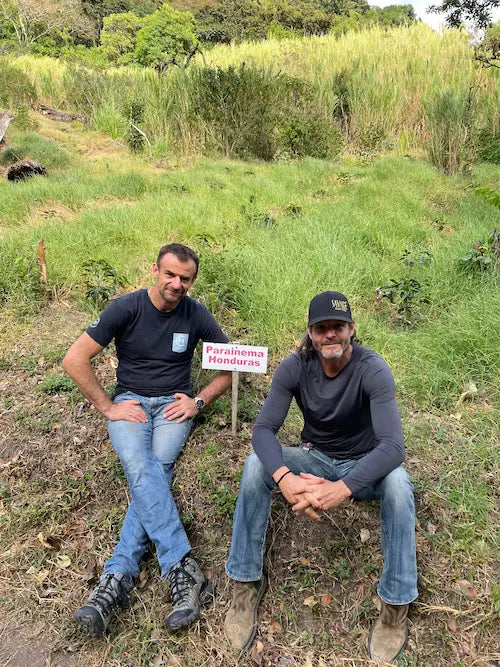
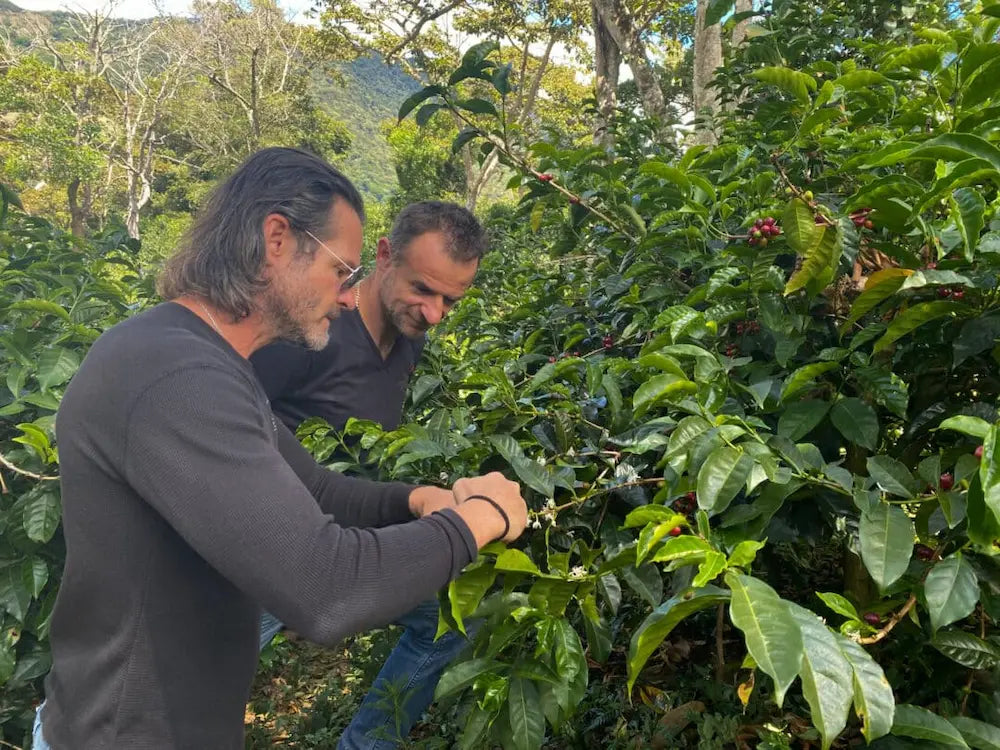
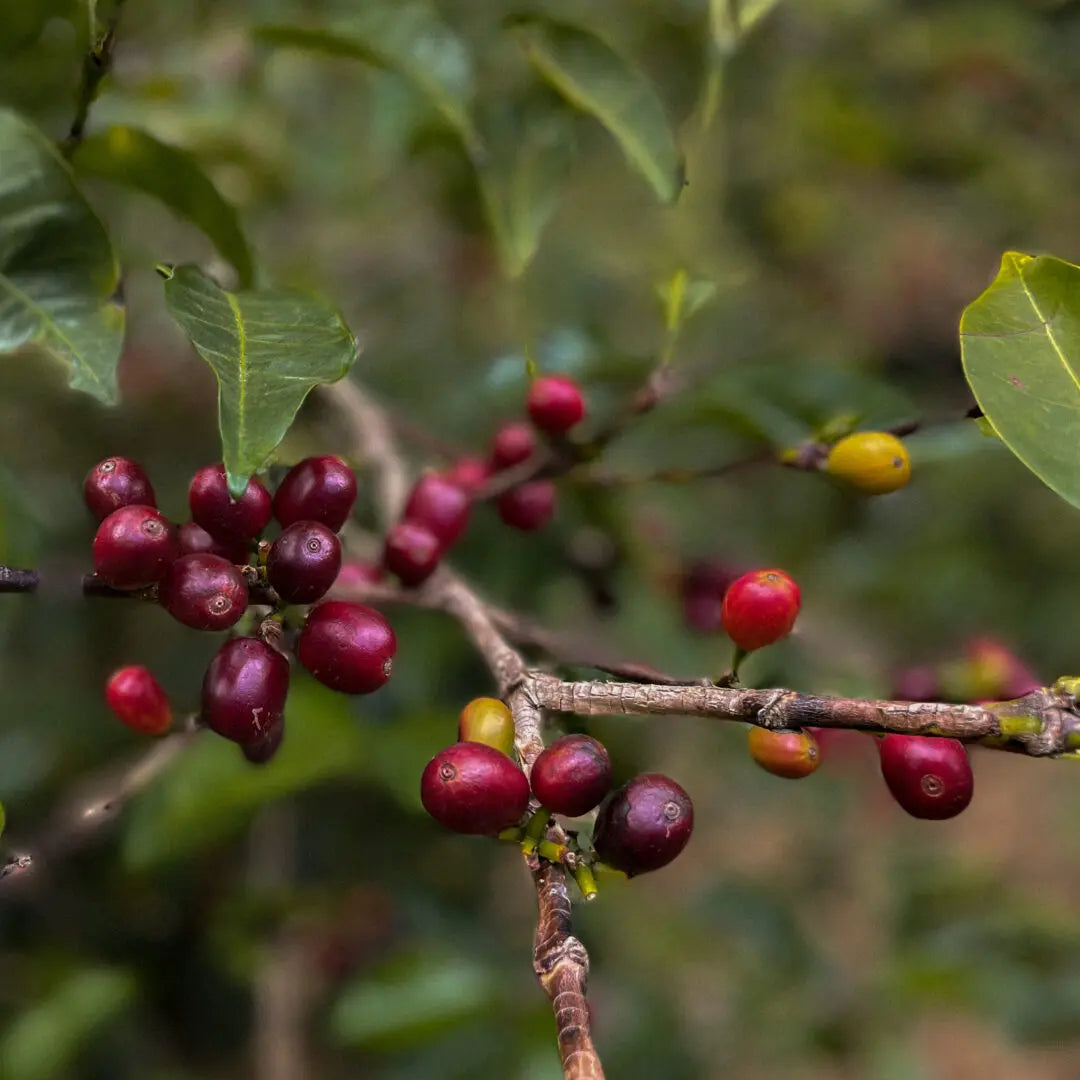
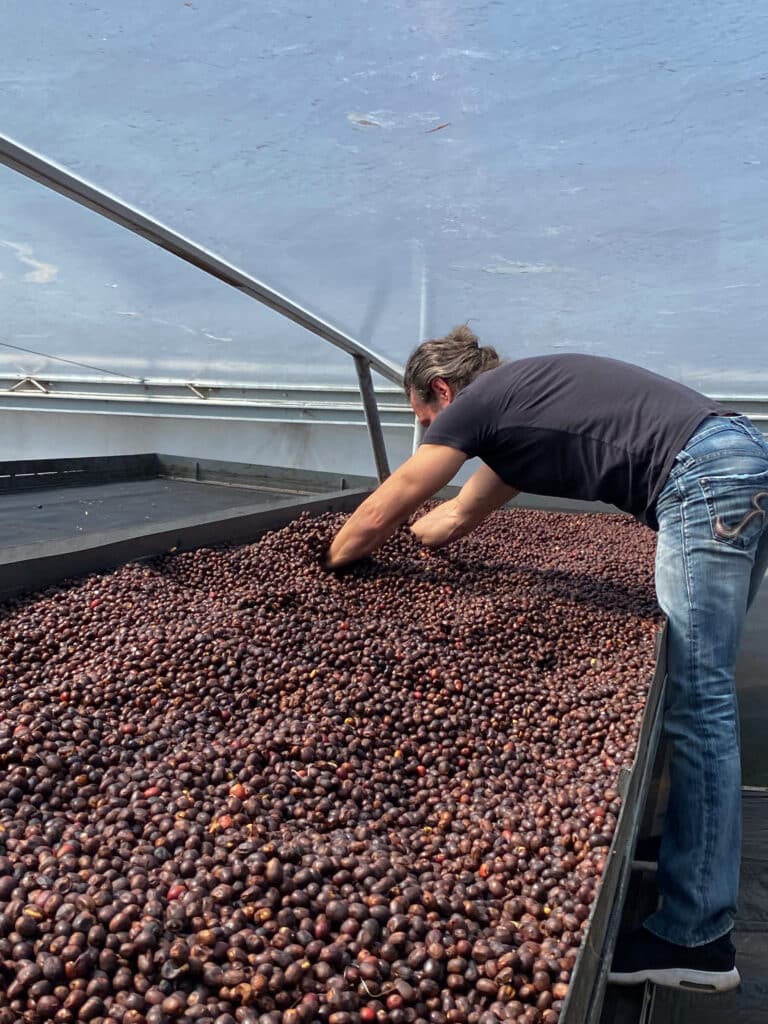
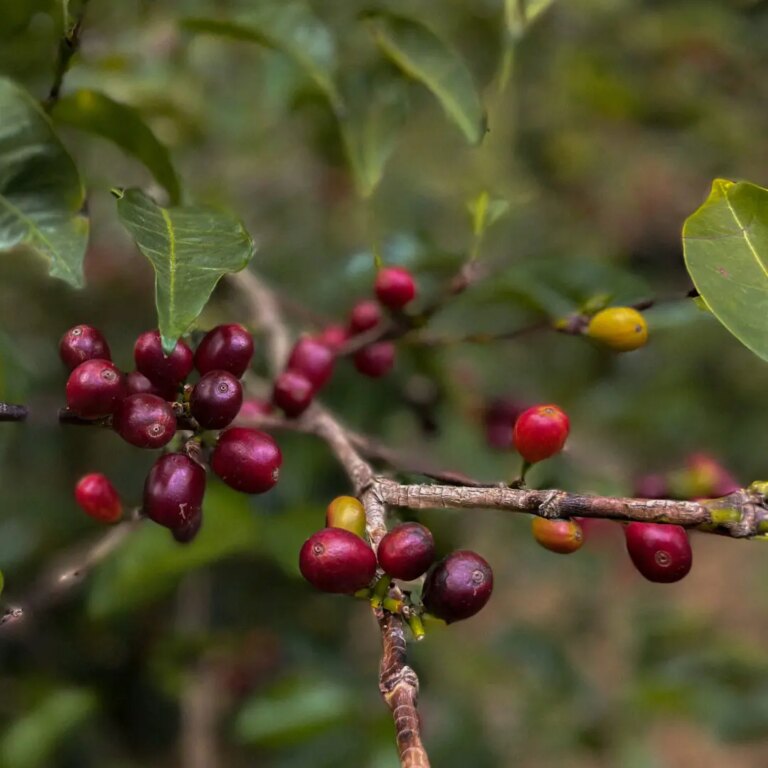
This coffee’s roasted in our filter style — meaning it’s designed to shine as black coffee rather than with milk. That doesn’t mean you have to brew it as a pour-over though. You can make it however you like — espresso, moka pot, AeroPress or anything in between. We simply roast it a little lighter to highlight the bean’s origin flavours giving you a cup that’s clean, vibrant and full of clarity.
Lighter roasting keeps more of the natural acidity and sweetness intact which makes for a beautifully expressive black coffee — and this one happens to play nicely with milk too. Expect a softer balanced cup where the sweetness carries through without turning sharp.
If you prefer your milk coffee with richer caramel, toffee or nutty flavours you might enjoy our espresso range more. Those roasts are taken a little darker to bring out deeper sweetness and balance beautifully with milk.
Origin and Sourcing
?
?
?
Roast Details
?
?
?
?
?
?
?
Taste Profile
?
?
Panama | Iris Estate | Jamison Savage | Geisha Natural Afterglow 2024 | Signature Series - When is peak freshness?
Light Roast - Roasted on Roest L100 Ultra
View other coffees in our Iris Esatate Collection here
Iris Estate Geisha AfterGlow Lot Processing Details
- Cherries are meticulously harvested perfectly ripe at a reading over 21ºBrix
- Cherries are immediately taken to the drying house at Finca Deborah and spread out on the top level of the three tier, raised African bed system
- Cherries are maintained at a specific depth of layering to prevent over-fermentation
- The Finca Deborah drying room controls temperature, heat, humidity and airflow toensure cherries have optimal conditions to enhance the best flavours
- Cherries are consistently agitated throughout the day during the first several days to enable consistent drying and to prevent mould
- After several days on the top level under direct sunlight cherries are moved to the
second level to continue drying for up to 30 days - Slower, labourious, and methodical drying processes prove essential to allow the coffee to absorb layered, natural and complex flavours from the fruit
- Moisture content is reduced to 10.5-11%
- Beans are stored in dried cherry pods and placed in grain-pro bags that are stored in bodega for up to 90 days
- This “reposo” or rest period allows the coffee to stabilise and equalise its humidity levels while also absorbing more flavours and sweetness from the dried fruit
Beans are then hulled and selected for density, size, shape and colour before being
lightly vacuum sealed ready for export
About Iris Estate
Perched high in Panama’s mountains, Iris Estate is where nature takes the lead in crafting exceptional specialty coffee. The land is alive, with fertile soil, soft sunlight, and fresh mountain water shaping every cherry that grows here. Under the guidance of world-renowned producers Jamison Savage and Sasa Sestic, the estate is nurtured with a philosophy of minimal interference, allowing the environment itself to define the coffee’s flavour and character.
Every decision at Iris Estate, from which varieties are planted to their placement across altitude and aspect and the processing style chosen, is made to showcase terroir. This careful harmony between land and grower produces coffees celebrated for their clarity, balance, and complexity. We freeze all our green beans from Iris Estate to preserve their pristine condition and flavour until the moment they’re roasted.
Founded by three leading coffee professionals, Iris Estate represents a new vision for the future of specialty coffee: one where the cup reflects the land it came from, not just the process behind it. The team’s mission extends beyond the farm to build transparency, sustainability, and stronger connections between producers and drinkers. Through open sharing of their cultivation and harvest practices, they invite coffee lovers around the world to experience the journey from soil to cup.
At its heart, Iris Estate stands as a beacon for what’s possible when passion, place, and purpose align, proof that the truest expression of coffee begins in the trees themselves.
-
Coffee in Panama
- Though small in coffee production, Panama is a mighty player in coffee quality. In particular, Panama is famous for producing Geisha variety lots that have fetched prices exceeding $800 per pound. Today, its renown as a producer of rare and sought-after varieties positions Panama as a contender for a new kind of ‘coffee-tourism’ that has the potential to change the way we produce, purchase, consume and talk about specialty coffee on a global scale.
The high value of Geisha has brought out both the best and worst in the industry. For established producers who receive excellent prices for their Geisha and other lots, the high prices they receive have often been reinvested in their communities and in renovating their farms to be as environmentally sustainable as possible. Unfortunately, the lure of Geisha’s high value has led some people bypass traditional land purchasing agreements and illegally deforest areas of national parks to get the best location for new (and illicit) Geisha farms.
Even as the number of producers those receiving high prices for their Geisha remains relatively low, the blossoming coffee industry in Panama has demonstrated potential to raise incomes for a wider spectrum of producers and coffee workers.
SKU: iris_estate_2024_afterglow_80g
Package Weight: 150g








